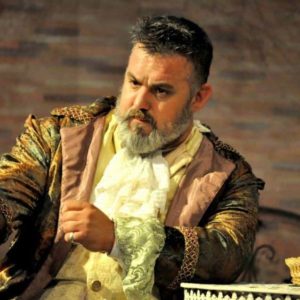From the new Lebrecht Album of the Week:
Most musicians go through life trying to avoid trouble, especially of the political kind. Gabriela Montero is an exception. Venezuelan by birth and an exile from childhood, she made her name as a flamboyant soloist in 20th century piano concertos. As encores, she invented her own riffs on themes requested by the audience. Over time, these became full-length compositions.
Unable to ignore the Government-impelled disintegration of her home country….
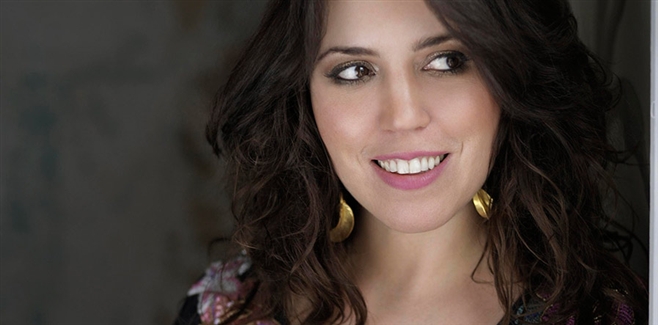
Read on here.
And here.
The Vienna State Opera has issued this statement of its position:
With regard to the allegations of sexual impropriety on the part of Plácido Domingo announced in the media in mid-August and which are unrelated to the Wiener Staatsoper, the management of the opera house and the management of Bundestheater Holding see no legally tenable reason not to fulfil existing contracts with Plácido Domingo. Domingo’s planned appearances as Macbeth in October 2019 and as
Nabucco and as conductor of La traviata in June 2020 will therefore take place.
“I was very concerned when I learned of these allegations from the media. I am not in a position to judge the specifics and also do not want to play them down. At the same time, I will also not pre-judge Plácido Domingo. Austria is a state governed by the rule of law; the facts presented to date tell me that a) no charges or police investigation currently exist against him; b) the Los Angeles Opera, where unlike the Wiener Staatsoper he plays a role in the decision-making, has launched an investigation; c) the presumption of innocence applies; and d) we know of no allegations in our area of responsibility. Indeed, Plácido Domingo is valued both artistically and as a human being by all in this house. We shall therefore honour our existing contracts with Plácido Domingo,” explained Staatsoper director Dominique Meyer.
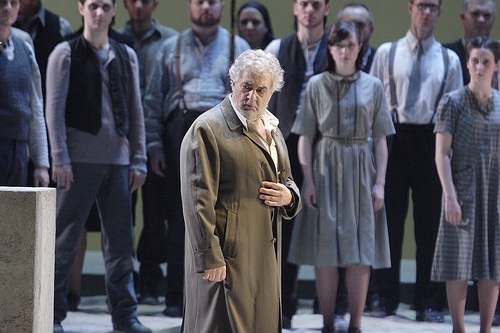
The Polish baritone Mariusz Kwiecień, a regular canceller this year, has withdrawn from singing Malatesta in Donizetti’s Don Pasquale in October ‘due to personal reasons’.
His replacement is the Austrian Markus Werba.

We hear that the orchestra has implored the Italian principal flute Silvia Careddu, who was controversially refused tenure in January, to continue playing on its visits to London and Lucerne, even though her contract expires this weekend.
It appears Silvia’s replacement, a Frenchman from Hamburg, is not yet availaable.
She has generously consented to continue playing next month with the people who voted her down.
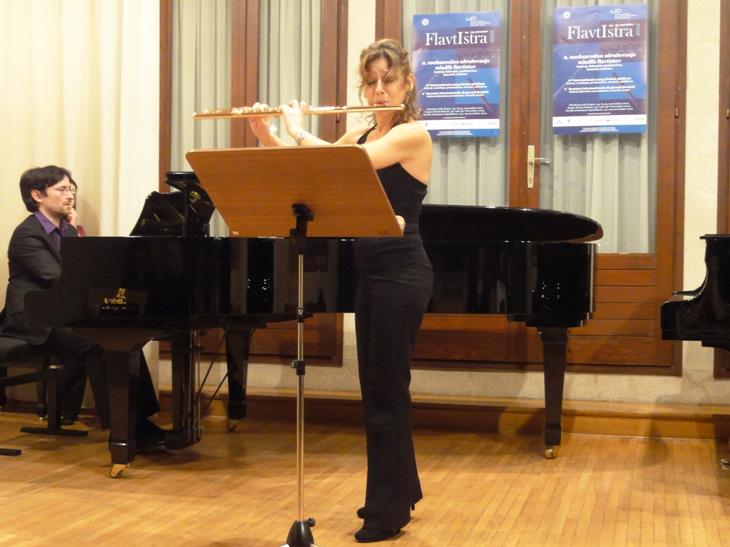
The musicologist Marina Frolova-Walker has found a gloriously dismissive 1939 review of Shostakovich’s fifth symphony by a self-admiring London critic with a distinctly Brexit mindset. Here it is:
If this symphony had been composed by William Walton I should have said that this talented composer had gone completely to seed, and it is very depressing to find that Russia, in spite of all its munificent State aid to musicians and composers, cannot produce anything better than this after a generation of subsidised effort.
More?
Unfortunately the symphony is disappointing. The first movement begins with a rhapsodic song-like theme which promises well and is followed by a march-like section after which there is a return to the first section, but more plaintive in character. It is curious that the opening and conclusion of this movement are more in the German than the Russian style. The second movement, a lively Allegretto, is a compete surprise. It suggests that Shostakovich is an ardent admirer of the Strauss family. It has a Viennese operatic character and is thoroughly conventional and bright. The third movement, Largo, is very weak and is rather like thin and sentimental Tchaikovsky in his worst moments. It is lyrical but has no positive beauty or invention, but merely that sort of vague sentiment characteristic of uninspired composers when writing slow movements intended to be of an emotional character. The finale Allegro non troppo is no better; it is made of rubbishy musical material and is thoroughly eclectic with echoes of both Tchaikovsky and Richard Strauss.
The critic was Walter J. Turner, Australian by birth and author of popular biographies of Mozart, Beethoven, Berlioz and Wagner. He reviewed for the New Statesman for quarter of a century before serving as literary editor of the Spectator from 1941 to his death in 1946, aged 62. This is his entry in the Australian Dictionary of Biography.
The review was of the first showing of a film of Mravinsky conducting the Fifth
Turner was a combative type who favoured Schoenberg, Hindemith and Stravinsky as the main streams of modernism. Shostakovich did not fit into his window boxes.
Or was there some political malice at work?
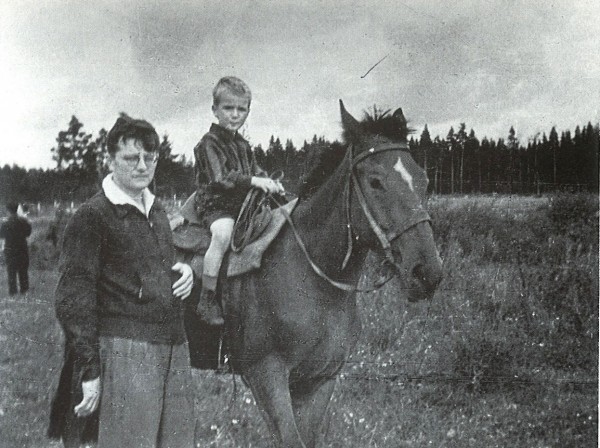
There have been a few, very few, at the head of an opera house and some have not lasted very long.
Mary Allen at Covent Garden, Cressida Pollock at English National Opera, for instance.
Ulrike Hessler ran the Semperoper in Dresden for two years until her early death in 2012. Eva Kleinitz died after two years at Strasbourg.
Francesca Zambello, at Washington National Opera, is presently the only head of a major US company.
Birgitta Svendén has headed the Royal Opera Stockholm since 2010.
Two more have just started – Laura Berman at Hannover and Sophie de Lint at Dutch National Opera.
There’s Katharina Wagner at the family business.
And that’s about it.
Christina Scheppelmann, who has just started as general director at Seattle Opera, is convinced there is a glass ceiling. She says: ‘I’m sure there has been, often, discrimination. But if I put this in my head, I will not change the discrimination. I can only change it by proving that I’m doing a good job.’
Read on here.
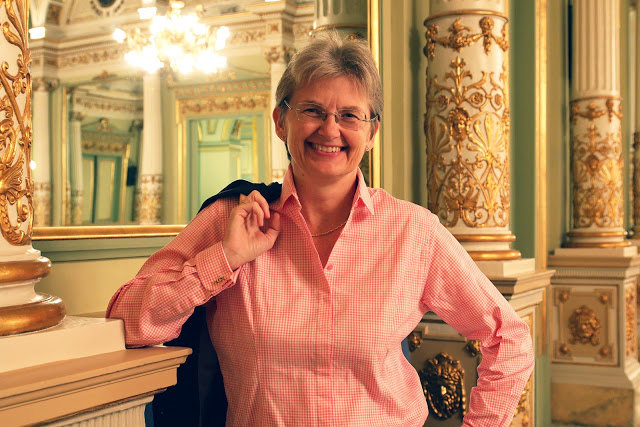
UPDATE: We’ve been reminded of Pamela Rosenberg who ran San Francisco Opera for five years and was joint chief at Stuttgart for seven. Simone Young was both music director and intendant at Hamburg State Opera. Karen Stone runs Theater Magdeburg and Lilli Paasikivi heads Finnish National Opera. Bregenz Festival is headed by Elisabeth Sobotka. Hanna Munitz lasted 30 years at the Israel Opera Tel Aviv.
UPDATE2: From conductor Francesco Cilluffo: I would like to point out that Rosetta Cucchi is the new General Director of Wexford Festival Opera, Cecilia Gasdia is General Director of Arena di Verona and Teatro Filarmonico, Anna Maria Meo is General Director of Teatro Regio di Parma, Barbara Minghetti is co-director of Macerata Opera Festival and Parma, and Cristina Ferrari runs Teatro Comunale di Piacenza. So not such a bad score, for Italy.
The orchestra has named the first participants in its new academy.
There are just 3 Austrians, 2 women.
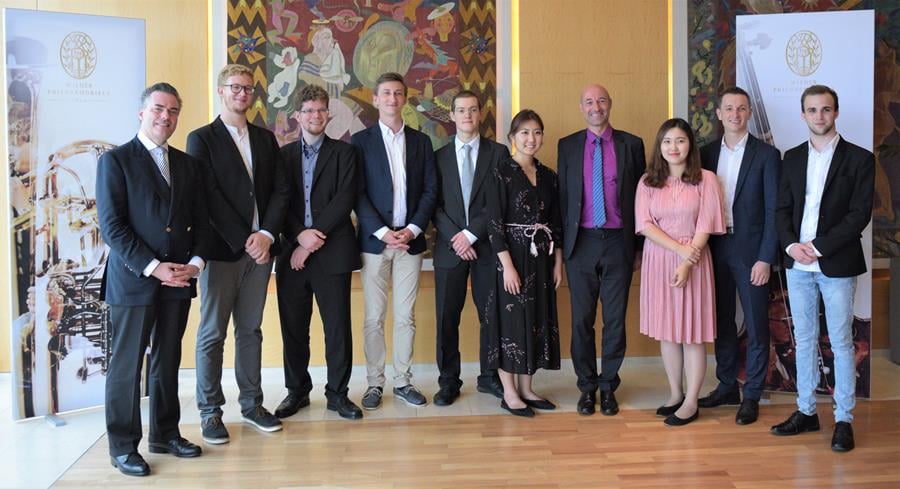
Hannah Cho, violin, USA
Andraz Golob, clarinet, Slovenia
Patrick Hofer, trumpet, Austria
Hana Jeong, double bass, South Korea
Ulisse Mazzon, violin, Italy
Samuel Mittag, viola, Switzerland
Michael Stückler, horn, Austria
Benedikt Sinko, cello, Austria
Sam Burstin is organising an ambitious Mahler 2 this Sunday 1st September at Blackheath Halls, on behalf of his friend, the singer Stephen Kennedy, and the Stroke Association. Steve, who sang with Tenebrae, the Philharmonia Voices and others, suffered a stroke in January and was in a coma for several weeks. Recently released from hospital, he is making a slow recovery, learning to walk again.
This will be an entirely on-the-day event with Sam’s Paradisal Players Orchestra and some 80 singers from Tenebrae, Blackheath Choir, the Monteverdis etc. Our soloists are Louise Alder and Martha McLorinan, both good friends of Steve’s. Everyone is giving their time for free. The orchestra will come together at 10.30, choir arrive at 1pm, and the concert is at 6pm. It is free to attend, tickets can be reserved and donations can be made via this link here.
Just turn up and do it.
